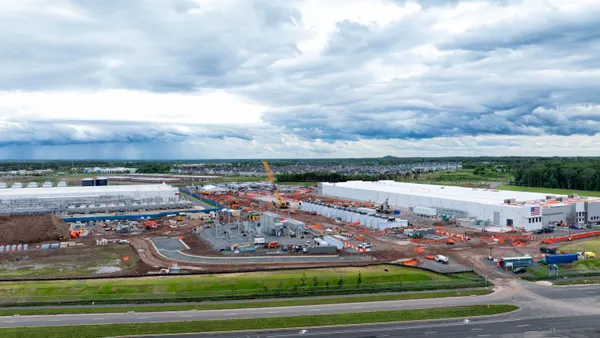Dive Brief:
-
Cybersecurity and cloud computing top the list of key priorities businesses plan to lean on in response to the pandemic, according to a report from Deloitte. The global survey consulted 1,089 executives directly involved in transformation efforts within their companies between June and July.
-
Cognitive and AI tools round out the top three, with 73% of respondents citing them as relevant technologies in the pandemic. Blockchain was last in the subset of technologies, with just 34% of respondents finding it a relevant technology in pandemic times.
-
Two-thirds of global respondents cite cybersecurity vulnerabilities among the top three external challenges businesses face. Among U.S. respondents, that percentage is even higher at 70%.
Dive Insight:
Technologies that help reduce cost, enable remote work and sustain operations gained great attention in the pandemic response. Cloud, security and automation can help businesses endure whatever comes next.
The pandemic cemented a trend already in process, said Omar Aguilar, principal and global strategic cost transformation leader, Deloitte Consulting LLP. "You see the future becoming clear and COVID-19 accelerating the urgency of transformation, technologically, and converging to new models," Aguilar said.
Organizations are preparing to hold on to the digital advancements made during the pandemic response, especially in areas that permit cost-cutting. Two-thirds of organizations expect to pursue cost reduction in the next year, an increase from 38% before the pandemic, according to the survey.
Prior to the pandemic, technologies such as automation, AI and cloud had evolved past the pilot stage but were not yet fully scaled, Aguilar said. Now, they are key components enabling how companies operate. "It's happening now."

Cloud delivers agility in operations, but also promises accelerating time-to-market and cost reduction by powering down data center use. Cybersecurity shields critical company data and operations from the influence of malicious actors, ensuring business continuity and lowering the risk of liability.
Companies needed to fully decentralize their operations before they had the infrastructure in place to do so, said Aguilar. Efficiency became a main driver for businesses adapting to the crisis, and cloud delivered new ways of doing business.
In turn, AI can enable cost-cutting for businesses that seek more efficiency from their existing staff. No matter which stage of crisis response companies are in, at least 65% of global respondents say automation is the transformation action they're most likely to implement.
In contrast, the lower interest in blockchain technology is in line with what's happening in the market. Companies halted blockchain pilots in the wake of the crisis, with leaders reassessing if the technology is the ideal fit for use cases at hand. While the market overall cooled, supply chain remained a stronghold for blockchain adoption, helping leaders gain more visibility and sustain trust between multiple stakeholders.














